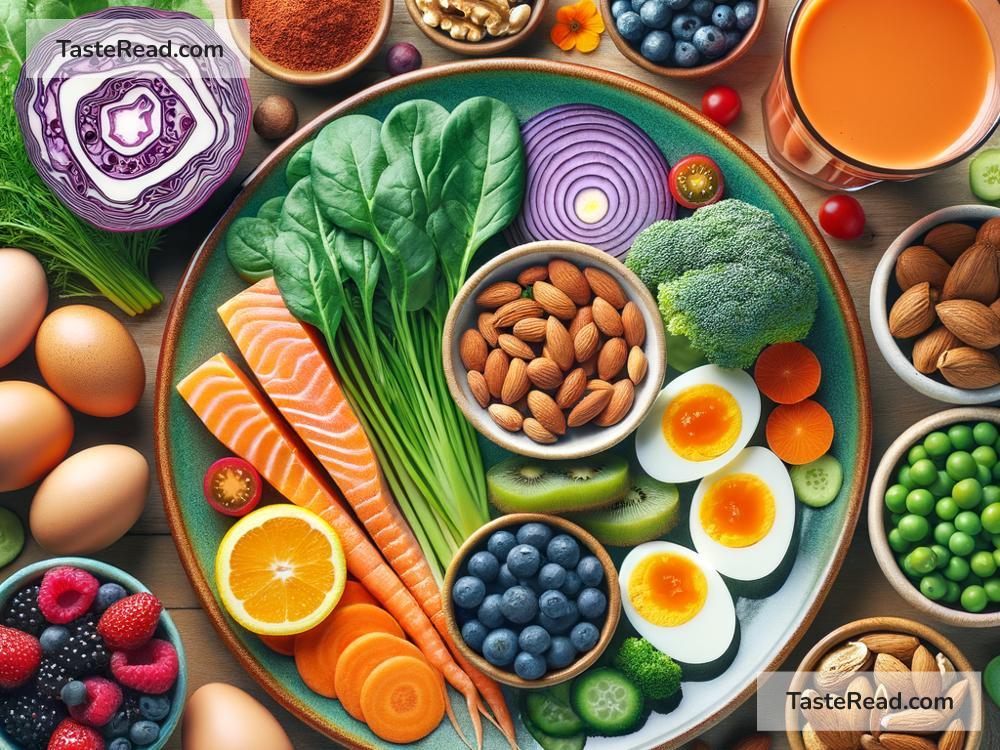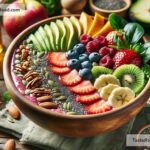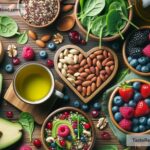The Role of Nutrition in Supporting Eye Health
Our eyes are incredible tools that help us see the world around us, but many of us don’t think much about how to take care of them. Just like the rest of our body, our eyes need proper care to stay healthy. One simple and effective way to support eye health is through a balanced diet. The food we eat provides essential nutrients that can help prevent vision problems, protect our eyes, and even improve eyesight over time. In this article, let’s explore the role of nutrition in keeping our eyes healthy and strong.
Why Nutrition Matters for Eye Health
Our eyes work hard every day, adjusting to light, focusing on objects far and near, and processing thousands of visual signals. This constant activity makes our eyes vulnerable to strain, damage, and age-related issues like cataracts or macular degeneration (a condition that affects central vision). However, many of these problems can be avoided or their progression slowed down with the right nutrients.
Certain vitamins, minerals, and antioxidants have special properties that support the health of our eyes. These nutrients help protect cells in the eye, reduce inflammation, and fight free radicals—unstable molecules that can cause damage to various parts of the eye. So, eating the right foods can be a powerful step in keeping your vision sharp for years to come.
Key Nutrients for Eye Health
Here are some of the most important nutrients that play a role in maintaining strong and healthy eyes:
1. Vitamin A
Vitamin A is essential for good vision, especially in low-light conditions. It plays a vital role in producing a protein called rhodopsin, which allows the retina to sense light. Vitamin A also helps maintain a clear cornea (the outer layer of the eye). A deficiency in vitamin A can lead to dry eyes and even night blindness.
Foods rich in vitamin A:
– Carrots
– Sweet potatoes
– Spinach
– Butternut squash
Fun fact: Carrots are famous for being “good for your eyes” because they’re packed with beta-carotene, which your body converts into vitamin A.
2. Vitamin C
Vitamin C is a powerful antioxidant that helps protect the eyes from damage caused by free radicals. It also contributes to the production of collagen, a protein that is crucial for maintaining the structure of the eye, particularly the cornea and sclera. Studies suggest that vitamin C may help lower the risk of cataracts and slow the progression of age-related macular degeneration (AMD).
Foods rich in vitamin C:
– Oranges
– Strawberries
– Kiwi
– Bell peppers
– Broccoli
3. Vitamin E
Vitamin E is another antioxidant that helps protect the eyes from oxidative stress caused by harmful free radicals. This can help reduce the risk of cataracts and AMD over time. Pairing vitamin E-rich foods with healthy fats can improve absorption, making it even more effective.
Foods rich in vitamin E:
– Almonds
– Sunflower seeds
– Avocado
– Peanut butter
4. Omega-3 Fatty Acids
Omega-3 fatty acids are vital for maintaining healthy tear production and preventing dry eyes. These healthy fats also support the structure of the retina and can reduce the risk of AMD. There’s evidence that omega-3s are especially helpful for people who spend long hours on screens, as they can reduce digital eye strain.
Foods rich in omega-3s:
– Salmon
– Mackerel
– Tuna
– Chia seeds
– Flaxseeds
5. Lutein and Zeaxanthin
Lutein and zeaxanthin are antioxidants often called the “eye vitamins” because they are found in high concentrations in the retina. These nutrients help filter harmful blue light and protect the eyes from oxidative stress, reducing the risk of AMD and cataracts.
Foods rich in lutein and zeaxanthin:
– Kale
– Spinach
– Zucchini
– Egg yolks
– Corn
6. Zinc
Zinc is a mineral that supports the functions of the retina and protects eye cells. It helps vitamin A work better in the body and is important for good night vision. A zinc deficiency can lead to poor night vision and even affect the structure of the eye.
Foods rich in zinc:
– Oysters
– Beef
– Pumpkin seeds
– Chickpeas
– Dairy products
Building an Eye-Friendly Diet
To keep your eyes healthy, try incorporating a variety of colorful, nutrient-rich foods into your diet. Think of your plate as a rainbow of fruits, vegetables, lean proteins, and healthy fats. By eating foods rich in vitamins A, C, and E; omega-3 fatty acids; lutein and zeaxanthin; and zinc, you can give your eyes the care they need to stay strong for years.
It’s also important to drink enough water to keep your eyes hydrated and avoid excessive salt, which can lead to bloating and puffiness around the eyes.
Lifestyle Factors That Enhance Nutrition’s Benefits
Nutrition alone isn’t enough to maintain perfect eye health. Pairing a balanced diet with healthy habits is equally important. Here are some tips:
– Wear sunglasses to protect your eyes from harmful UV rays.
– Give your eyes regular breaks from screens to prevent digital eye strain.
– Maintain a healthy weight, as obesity can lead to conditions like diabetes that affect eye health.
– Get regular eye check-ups to address vision problems early.
Wrapping Up
Your eyes play a crucial role in how you experience the world, so taking care of them is essential. Nutrition is one of the easiest and most effective ways to support eye health. By eating the right foods packed with key nutrients, you can prevent or slow down many common eye conditions and even boost your overall vision.
So, next time you’re at the grocery store, remember to fill your cart with leafy greens, colorful fruits and veggies, fresh fish, and nuts. Your eyes will thank you!


